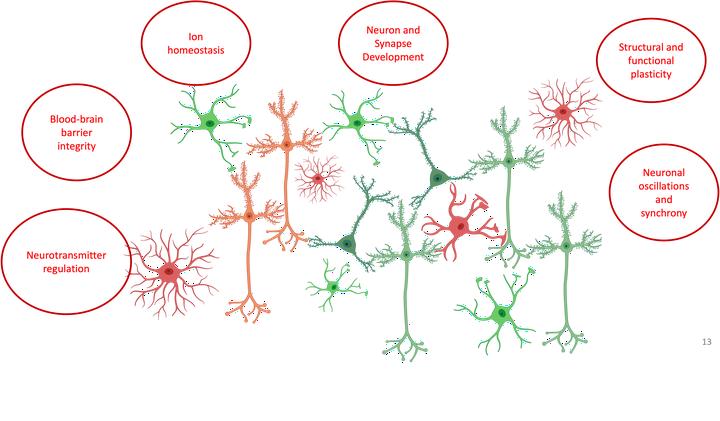A role for astrocytes in treatment of cognitive deficits after early life seizure

Astrocytes are crucial for the normal development of neurons, are actively involved in neuronal signaling and are crucial for maintaining excitatory/inhibitory balance, and are damaged in adult epilepsy. We have previously shown that ACTH has actions beyond its systemic effects alone in this animal model and may be acting through a subtype of neuropeptide receptors in the brain to improve outcome after recurrent early life seizures (ELS); indeed, very recent preliminary data indicate that ACTH is only effective in animals that express melanocortin 4 receptors (MC4Rs) in the brain. These receptors are on neurons but also astrocytes, one of the most abundant cells in the brain. This project is designed to understand the role of astrocytes and MC4Rs on those astrocytes in altering the way neurons communicate after ELS.
We hypothesize that early life seizures will lead to reactive astrocytosis, impaired expression of proteins involved in glutamate reuptake and ion buffering, and impaired neuronal-glial interactions, which will be recovered by ACTH treatment, but only when MC4Rs are expressed. The first aim will explore reactivity phenotypes of astrocyte populations in the brain and putative static alterations in expression of proteins involved in key astrocytic pathways after ELS, and test the hypothesis that these putative alterations are normalized with ACTH treatment but only when MC4Rs are expressed. The second aim will explore dynamic changes in neuron-neuron, astrocyte-neuron, and astrocyte-astrocyte communication after ELS, testing the hypothesis that ACTH can normalize putative changes in this signaling in an MC4R-dependent manner.
Successful completion of this project has the potential to change the way we think about treatment of pediatric epilepsy, and may have implications for the treatment of other neurodevelopmental disorders as well.